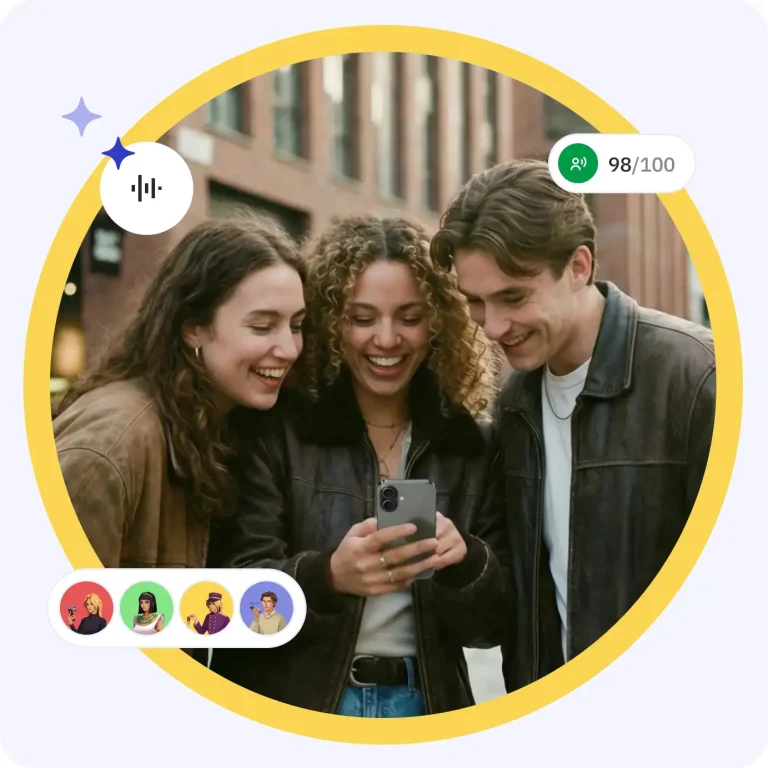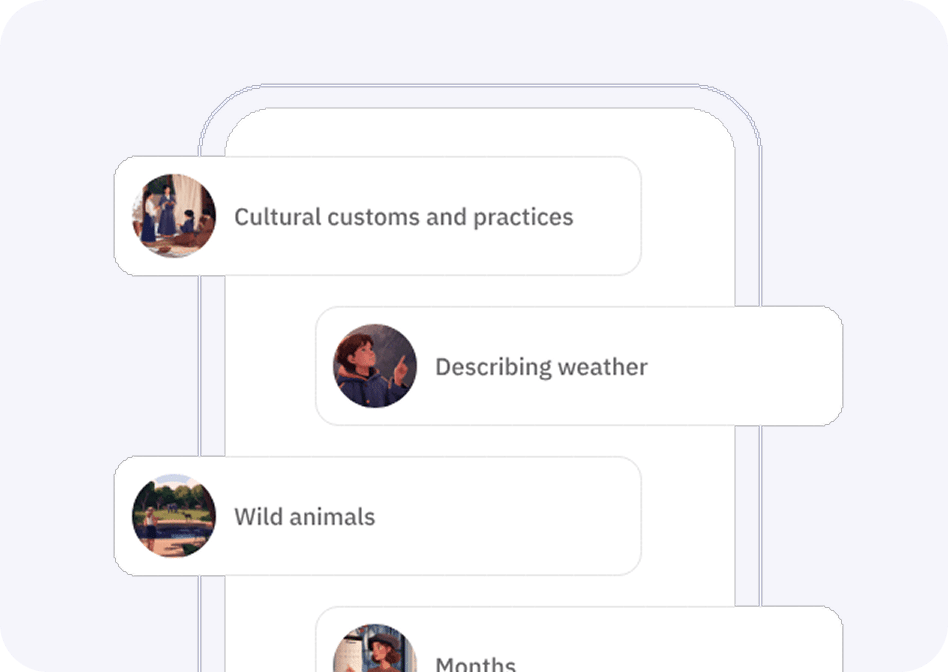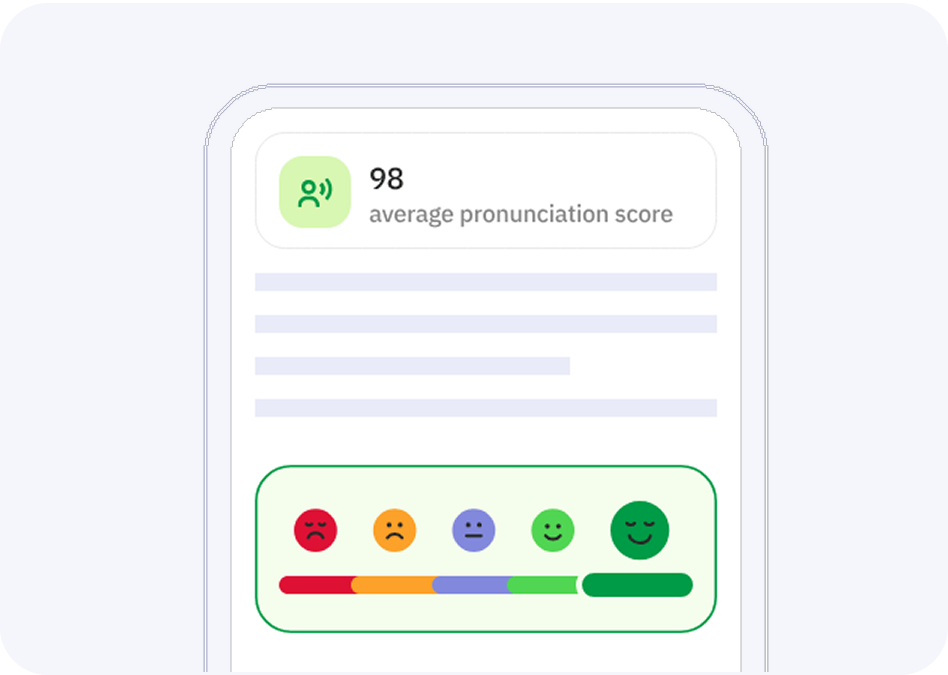Italian Language Courses
Embarking on the journey to learn a new language opens up a world of opportunities, and what better way to dive into the rich cultural heritage of Italy than through Italian language courses? Whether you’re a travel enthusiast, a lover of arts and music, or someone looking to enhance their professional portfolio, learning Italian can be a rewarding endeavor. In this exploration, we examine the importance of choosing the right courses and how a personalized learning approach can enhance your language acquisition.

The talkpal difference

Personalized Education
Every student has a distinct style of acquiring knowledge. Through Talkpal technology, we analyze the study patterns of millions of users concurrently to build highly effective educational frameworks. These insights allow us to fully customize the lesson plans for every single user based on their specific interests and needs.

Cutting-Edge Technology
Our main mission is to lead the way in providing a unique study experience for every person. We accomplish this by leveraging the most recent innovations in technology to ensure you get the best AI-driven guidance available.

Making Learning Fun
We have transformed the educational process into a delightful activity. Since maintaining motivation in an online setting is often difficult, we developed Talkpal to be immersive and exciting. The experience is so compelling that many users prefer improving their language skills with our app instead of playing video games.
LANGUAGE LEARNING EXCELLENCE
The most efficient way to learn a language
Try Talkpal for freeIntroduction to Italian Language Courses
1. Understanding the Popularity of Italian
Italian is not just the language of Italy; it’s the language of art, music, and gastronomy. Enrolling in Italian language courses presents an exciting challenge for millions globally, captivated by Italy’s rich history and vibrant culture. Learning Italian enables you to access original texts in music, art, and literature, making the educational process not just about acquiring language skills but about immersing oneself in cultural depths. With Italy being a top tourist destination, knowing the language improves your travel experiences, allowing for deeper interactions and understanding.
2. Choosing the Right Italian Language Course
The first step to learning Italian effectively is choosing the right course. Italian language courses come in various formats—from online classes and local community courses to intensive language programs in Italy. Prioritize courses that focus on immersive experiences, which can significantly enhance language retention and practical usage. Additionally, ensure that teachers are native speakers or highly fluent, as they provide authentic insights into the language and culture.
3. The Benefits of Online Italian Language Courses
Online Italian language courses offer flexibility and convenience, making them ideal for those with busy schedules. Platforms offering these courses often include a range of tools such as video lessons, interactive exercises, and live conversation practice. They cater to different proficiency levels, allowing learners to start at an appropriate stage and progress at their own pace. Online courses also enable access to a global community of learners, providing a supportive environment to practice and improve language skills.
4. Immersive Learning in Italy
Nothing accelerates language acquisition like being in an environment where the language is spoken. Immersive Italian language courses in Italy allow learners to practice Italian in real-life situations. This method reinforces what is taught in classrooms, making it a powerful way to deepen language comprehension and speaking abilities. Furthermore, living in Italy, even for a short period, provides a contextual backdrop for the language, enriching the learning experience with cultural, historical, and social insights.
5. Personalized Learning Approaches
Personalized Italian language courses tailor learning experiences to individual needs, accommodating different learning styles and paces. Such customization is crucial because everyone absorbs and processes information differently. Personalized courses often involve assessments that identify your strengths and weaknesses, followed by tailored lessons that focus on areas requiring improvement. This approach not only maximizes learning efficiency but also keeps the learner motivated and engaged.
6. Group vs. Private Italian Lessons
Deciding between group and private Italian lessons depends on your learning objectives and preferences. Group lessons offer interactive opportunities, enabling learners to practice with peers. These settings also simulate real-life conversations better. Conversely, private lessons provide undivided attention from the instructor, allowing for more personalized feedback and a pace set entirely around the learner’s progress.
7. Integrating Technology in Learning Italian
Advancements in educational technology have transformed how Italian language courses are taught. Interactive apps and platforms introduce an element of fun through gamification, which can motivate learners and help build vocabulary and grammar skills effectively. Online forums and video conferencing tools facilitate real-time communication with native speakers, offering an avenue for practical language use and cultural exchange without the need for travel.
8. The Role of Cultural Immersion in Language Learning
Cultural immersion is an essential aspect of learning any language. Italian language courses that incorporate cultural elements help learners understand context and usage within real-life scenarios. This could include practices like using Italian in cooking classes, watching Italian films, or participating in local Italian festivals. Such experiences make learning Italian enjoyable and educational, providing a richer, more rounded understanding of both language and culture.
9. Achieving Fluency Through Consistent Practice
Consistency is key in achieving fluency in Italian. Regular practice speeds up the learning process and helps solidify the language fundamentals. Italian language courses should offer ample opportunities for speaking, listening, reading, and writing. Consistent practice in all these areas ensures a well-rounded approach, preparing learners to use Italian effectively in various settings.
10. Leveraging Tools Like Talkpal AI for Italian Learning
Incorporating tools like Talkpal AI can significantly enrich the experience of learning Italian. Talkpal AI adapts to individual learning preferences and paces, making it a highly effective personal tutor. Its AI-driven programs are designed to make language learning effortless, engaging, and fun. With tools like Talkpal, learning any language, including Italian, becomes a breeze, providing an excellent complement to traditional Italian language courses for a well-rounded learning journey.
Conclusion
Italian language courses offer a gateway to not only mastering a beautiful and useful language but also enriching one’s life with new perspectives and cultural understandings. Choosing the right course, incorporating technology, and maintaining a balance between structured learning and cultural immersion are crucial components. With the assistance of innovative tools like Talkpal AI, embarking on this linguistic journey is more accessible and exciting than ever. Embrace the adventure of learning Italian, where every lesson learned is a step closer to a broader worldview.
The most efficient way to learn a language
Try Talkpal for freeFrequently Asked Questions
How long does it typically take to become proficient in Italian?
Are online Italian language courses as effective as in-person classes?
Can learning Italian help with my career?
What resources in addition to Italian language courses can help improve my Italian?







